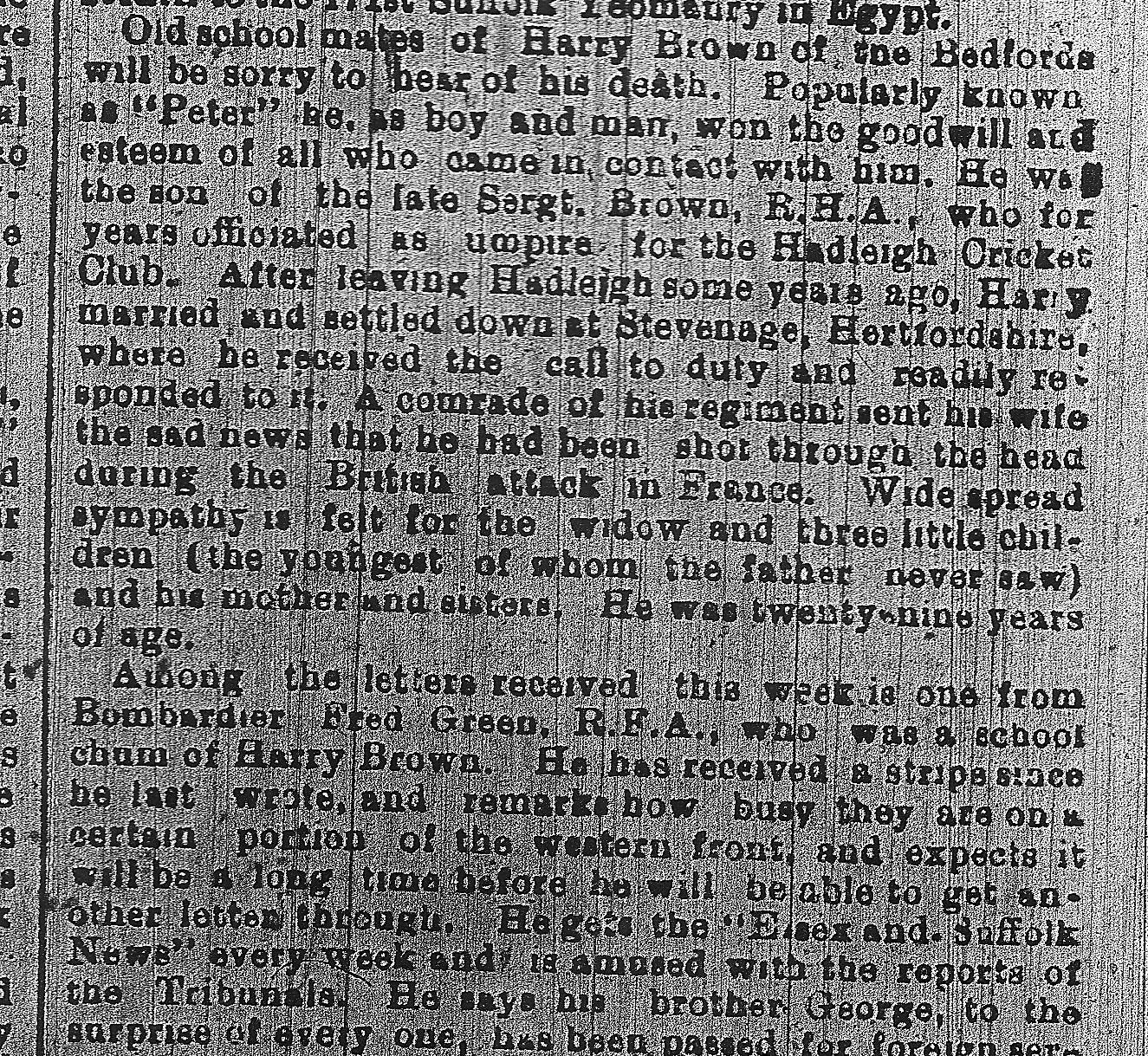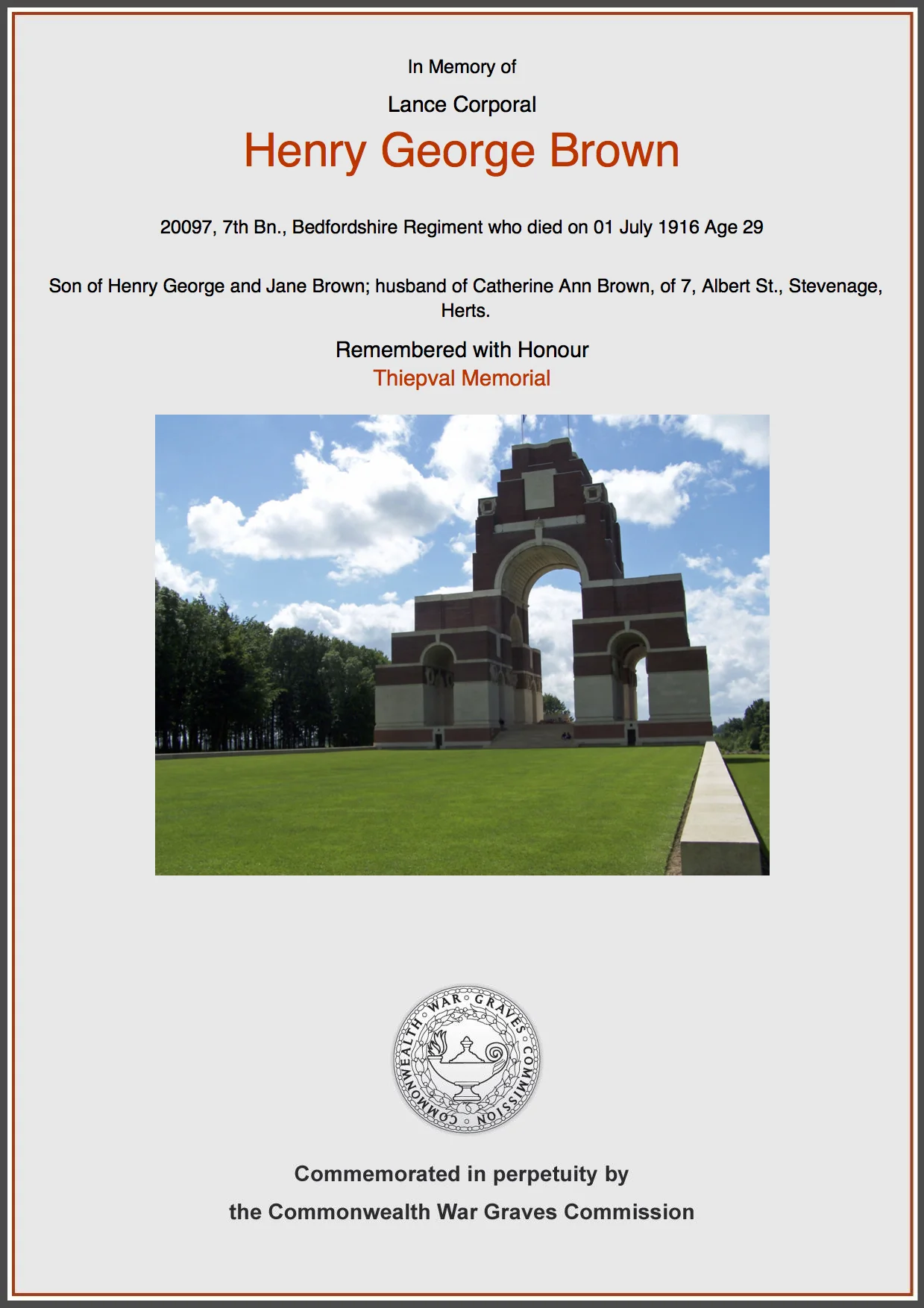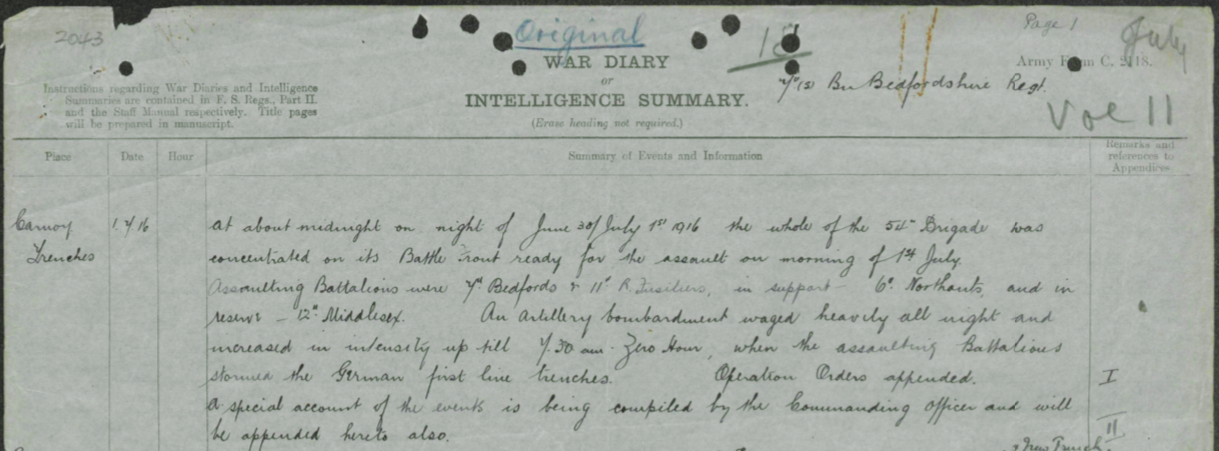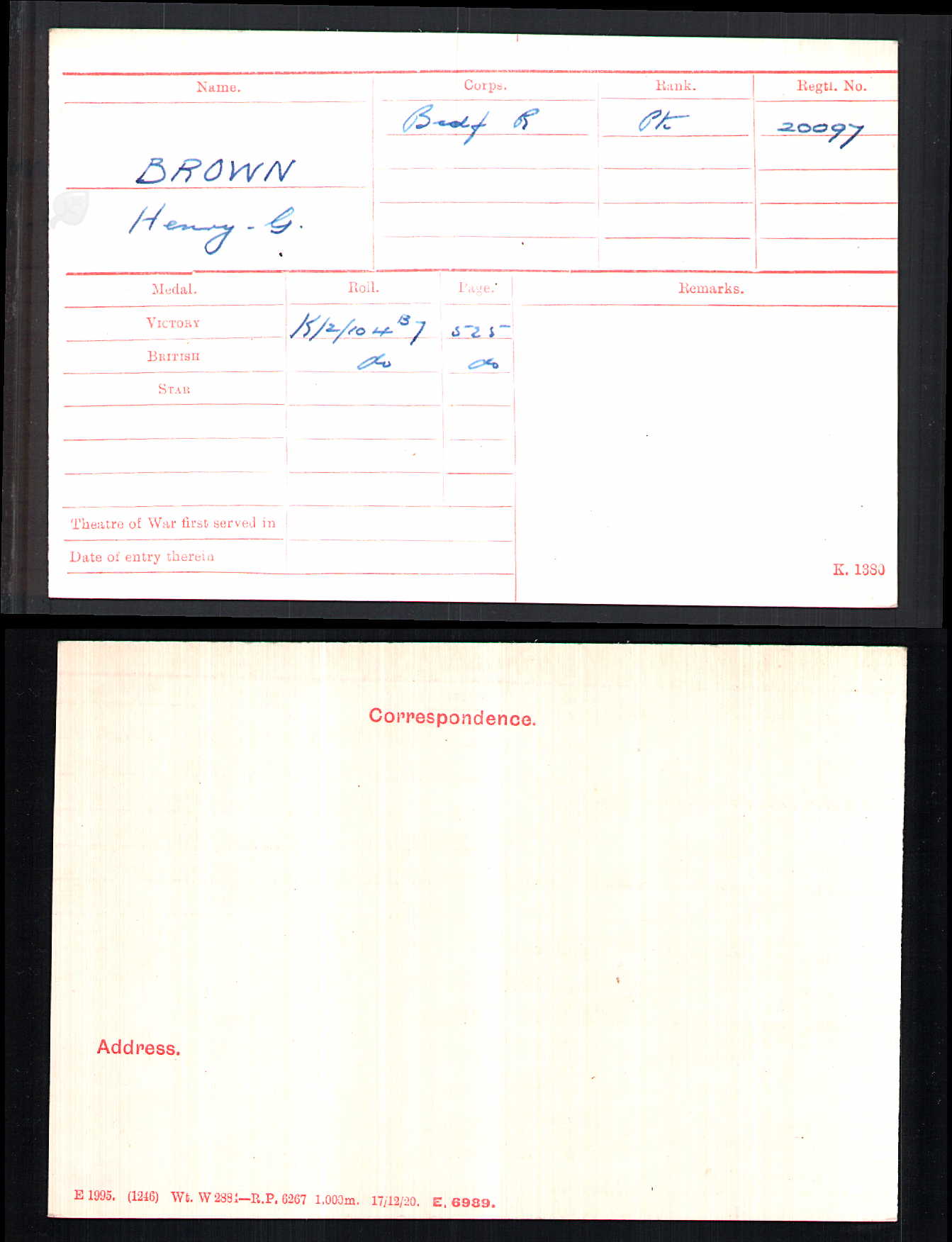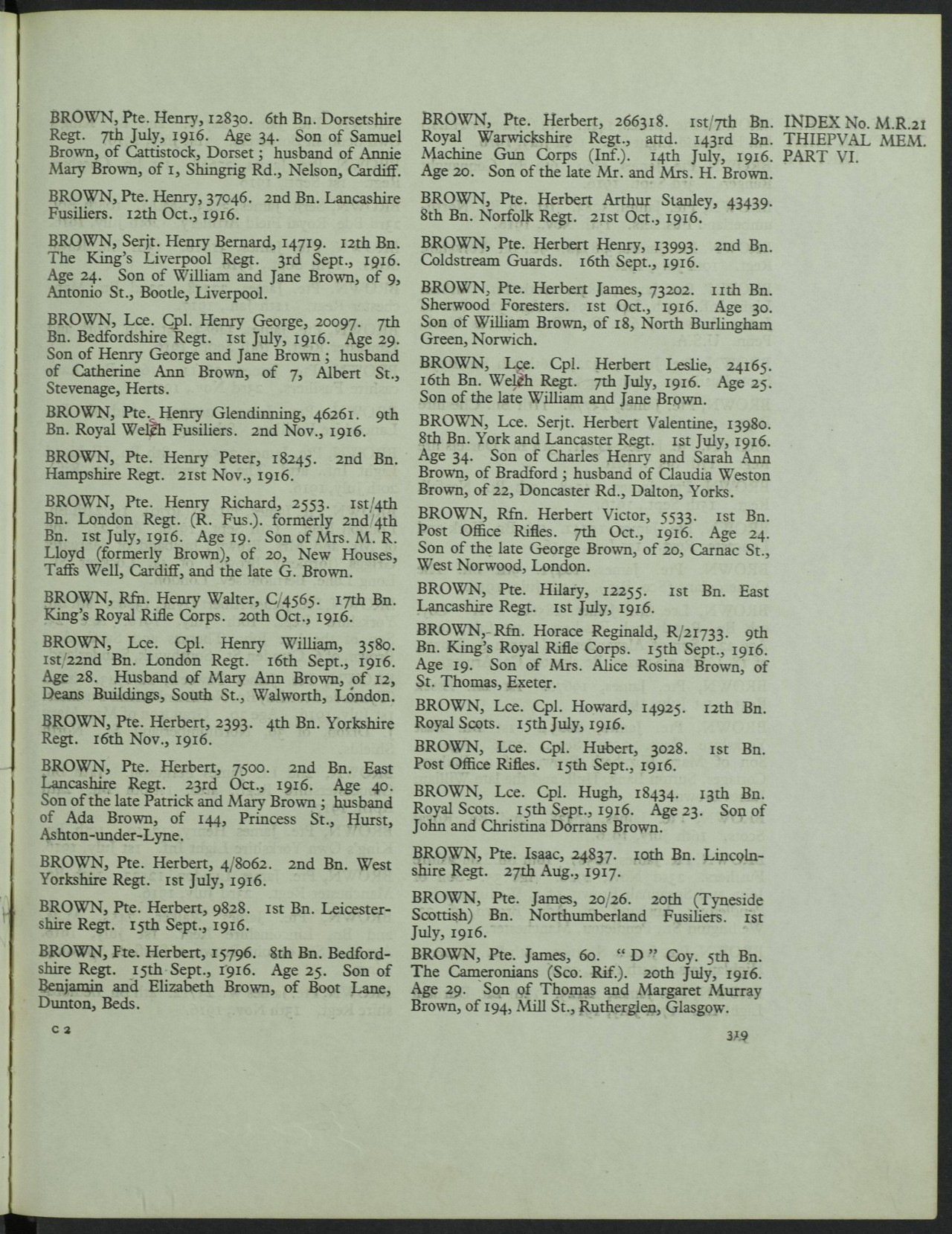Harry Brown
Rank: Lance Corporal
Service Number: 20097
Date of Birth: 1887
Regiment: 7th (Service) Bn Bedfordshire Regiment
Date of Death: 1 July 1916
Age at death: 29
Cemetery / Memorial: Thiepval Memorial
Country: France
Grave / Reference: Panel
Relatives: Son of Henry George and Jane Brown, husband of Catherine Ann Brown.
Address: 7 Albert Street, Stevenage, Herts.
Henry ‘Harry’ George Brown was born in Ennis, County Clare, Ireland on 10 June 1887. At some point the family moved to England and a young Harry started at Bridge Street School in June 1896. He left school on 24 July 1901 at the age of 14 to start work. While in Hadleigh the family lived in Portland Place on Gallows Hill. His father was a keen cricket umpire and involved with the Hadleigh Cricket Club.
Medal Index Card
A platoon of ‘D’ Company of the 7th (Service) Battalion, Bedfordshire Regiment passing through a French village on its way to the line, shortly before the start of the offensive [Battle of the Somme 1916]. The officer at the head of his platoon is Lieutenant Douglas Keep, who was killed in 1917. Imperial War Museum image Q79478
Cutting from the Essex & Suffolk News.
At some point Harry moved to Stevenage where he worked at as a groom at Knebworth House. He married Catherine Ann and fathered three children.
We are not sure exactly how Harry came to join the Bedfordshire Regiment, but he answered his countries call and ended up serving with the 7th (Service) Battalion which was formed in Bedford in September 1914 as part of K2, the second wave of Kitchener’s New Army. By the summer of 1916 the 7th Battalion was part of 16th Brigade, 6th Division.
We do know that they took part in the most infamous battle in British military history, the opening day of the 1916 Somme offensive which took place on 1 July 1916. On that day the British suffered 60,000 casualties, including 19,240 killed on the first day alone. Harry Brown was one of those killed.
Lance Corporal Harry Brown was entitled to the above two medals, although the whereabouts of these medals is currently unknown.
It is difficult to know exactly what happened to Harry but we know from the battalion war diary that the day did not go well. The diary confirms that 70 other ranks were killed and it lists Harry as one of those killed on 1 July 1916. The casualty list also confirms that Harry was in ‘C’ Company.
‘C’ Company was one of the assaulting companies to go over the top in the very first wave. They were assaulting on their battalion’s left front. The war diary givens an excellent description of their progress and makes it clear that it was a tough day. By the time the company had reach the German trenches and redoubt, there were no Officers or NCOs left to rally the remaining troops.
The newspaper cutting from the Essex & Suffolk News of the day adds to the story by reporting the death of Harry Brown and stating that a comrade had written to Harry’s widow with the sad news that he had been shot through the head.
On 3 July the 7th Suffolks launched a pre-dawn attack to capture the village of Ovilliers. They overrun the German front line trenches, but became involved in a tough fight for the second line. After five hours, with casualties mounting and ammunition running low they were forced to withdraw.
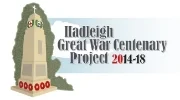
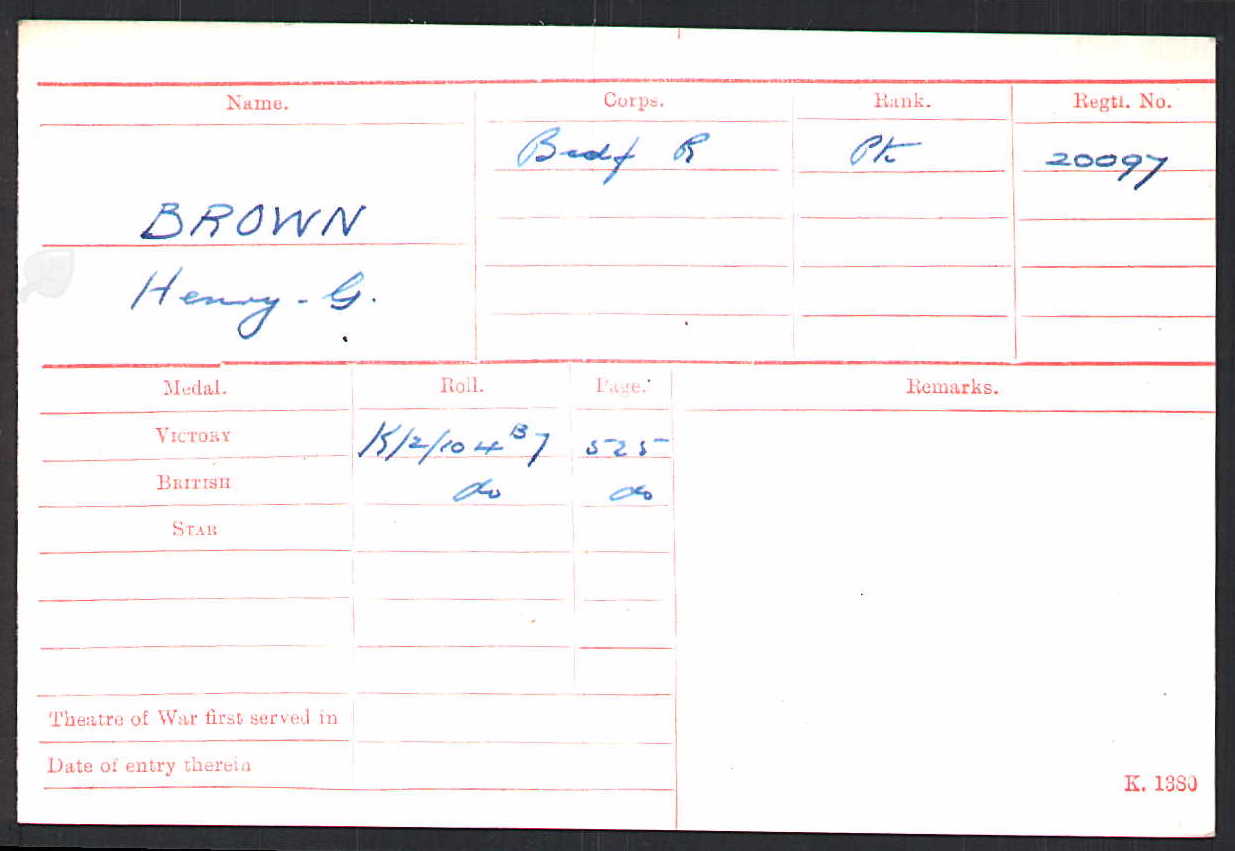
![A platoon of ‘D’ Company of the 7th (Service) Battalion, Bedfordshire Regiment passing through a French village on its way to the line, shortly before the start of the offensive [Battle of the Somme 1916]. The officer at the head of his platoon is L…](https://images.squarespace-cdn.com/content/v1/542683d2e4b0e138199579ce/1560930164791-TTKCDY310JDUTIR6HYUF/IWM+Q79748.jpg)
